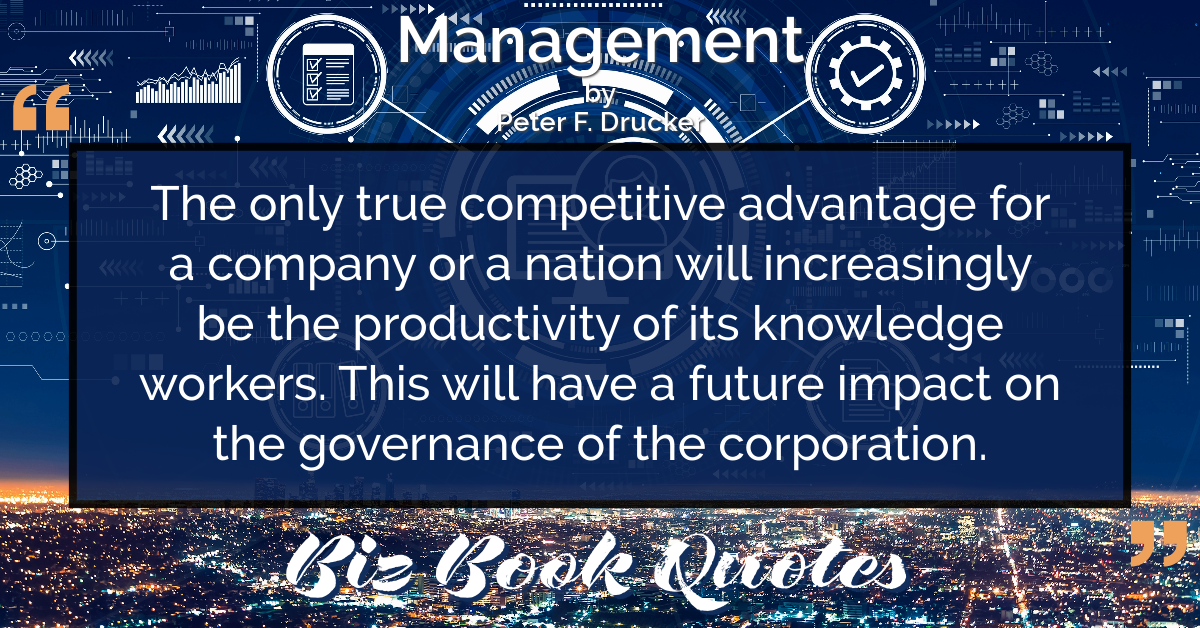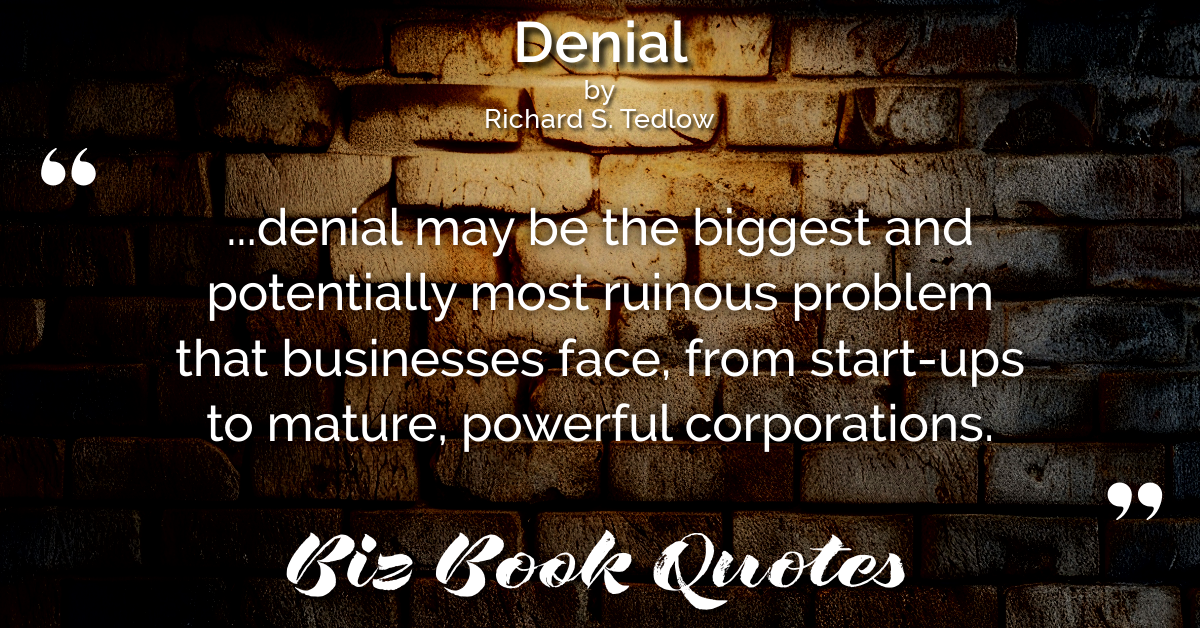 |
Corporations, like any bureaucracy, tend to resist change, especially when the change doesn’t have the support of top management.
|
35 |
 |
[Leaders] know that they must balance the competing claims of all the groups with a stake in the corporation.
|
195 |
 |
…the best corporate leaders… remain students of their work, relentlessly asking questions – why, why, why? And have an incurable compulsion to vacuum the brains of people they meet.
|
039 |
 |
Public corporations face incessant pressure from the capital markets to grow as fast as possible, and we cannot deny this fact.
|
054 |
 |
…top management in the next society’s corporation will [need to] balance the three dimensions of the corporation: as an economic organization, as a human organization, and as increasingly important social organization.
|
058 |
 |
…the need for a secure retirement income will increasingly focus people’s minds on the future value of the investment. Corporations… have to pay attention to both their short-term business results and their long-term-performance, as providers of retirement benefits.
|
059 |
 |
The only true competitive advantage for a company or a nation will increasingly be the productivity of its knowledge workers. This will have a future impact on the governance of the corporation.
|
209 |
 |
…denial may be the biggest and potentially most ruinous problem that businesses face, from start-ups to mature, powerful corporations.
|
002 |